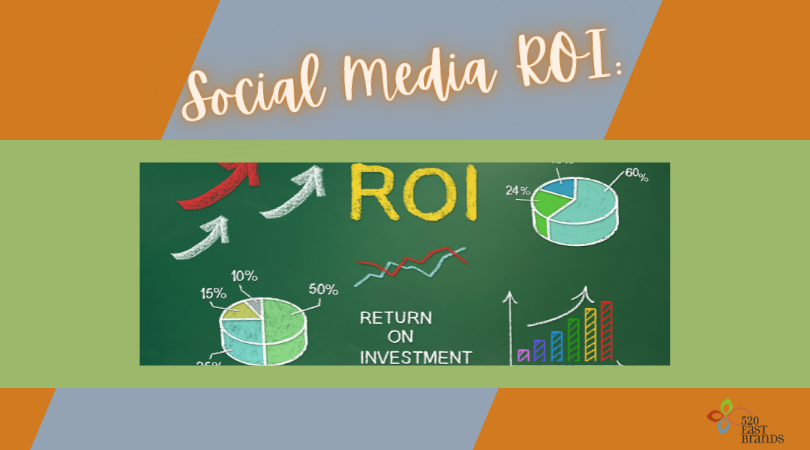Every once in a while, clients forget why they hired us and want to talk about ROI. Now, I’m a business owner. I get the need for validating why we’re spending money on a product or service and determining if it’s leading to sales. I’m not discounting that. BUT…
When it comes to social, ROI can get a bit fuzzier and it’s important that the distinction is made between direct ROI and what I’d like to call “Peripheral ROI.”
Let’s go to the beginning. When I first meet with a prospective client, we talk about their objectives for why they want to use social and ultimately why outsourcing to our team is the best fit for their business. Usually it goes something like this:
“We keep trying to do this in-house but something else always takes precedent. We’ll post on Facebook with no strategy or plan, we auto-publish onto other platforms, we see no immediate results, something more pressing comes up, social implementation gets pushed to the side. We know we need to be consistent. We know we don’t know what we’re doing, and it’s time we hire an expert.”
This is when I interrupt with, “Just clarifying, we are not experts. We are practitioners and anyone who is calling themselves an expert is lying to you.” More on that here.
The next conversation we’ll have with this business owner, VP of marketing or communications coordinator will include our proposal. This is when we will talk about what we will do for them:
- Build Brand Awareness;
- Create conversation with your customers and potential customers;
- Get in front of a new audience;
- Give your brand a true, human voice that lets people know the people behind your brand are just like them – helping to build credibility;
- Drive traffic to your website;
- Pique the interest of people whose problem you solve, even if they don’t yet know they have a problem.
All of this does what?
If your answer to this question is “lead to sales” then you are correct. BUT.. do they lead directly to sales? Maybe not. It could take months and months of talking to someone on Twitter before they click through to your website and buy… and they may never buy. BUT they may have a neighbor who in passing says they need a widget… and that person’s mind remembers a conversation they had online with a person whose company makes that widget.. .and the neighbor is the one making the purchase.
So can we go from an organic, conversational post and see the traffic move directly from there to the website and all the way to the shopping cart? Likely not. Does that mean social didn’t lead to sales? Of course not.
One of the things we specifically look for in our analytics is reach. We want to be sure our content isn’t JUST getting in front of those who have already said they like us or want to follow us or engage with us. We want to be sure we are consistently reaching a new set of eyeballs. The more people who know your brand exists, the more potential customers you have.
I’ve mentioned before my mentor, Jason Falls, makes this all sound so easy. “Social media isn’t rocket surgery,” he’s been known to say. Back in 2014, he wrote this piece on why ROI is the wrong question to focus on around social media. In it, he says:
We’ve been talking about the ROI of Social Media, or its return on investment, almost as long as we’ve been talking about social media itself.
He goes on to refer back to his discussion of this topic in 2008, and says in 2014, the argument holds true. I’d say in 2022, this is still the case.
Businesses need to understand and expect that while social media engagement supports and can lead to sales, the expectation that organic conversation leads to direct sales 100% of the time is flawed, unattainable and frankly, ridiculous.
I’ve always said what we do on social is create and engage in conversation, as if we were at a large event and had to start making friends. Would we walk up to new people, introduce ourselves and immediately say, “go buy my product?” Of course not. We might know that person over a period of years before they ever say, “You know what? I’m interested in what it is you do. Let’s set up a meeting and talk about if we could work together.”
So when you look at the ROI of social, remember its purpose and your initial objectives. Remember it’s peripheral, and while it’s part of the marketing mix that leads to sales, businesses must keep in mind how it does that.
Got questions? Let me know.



